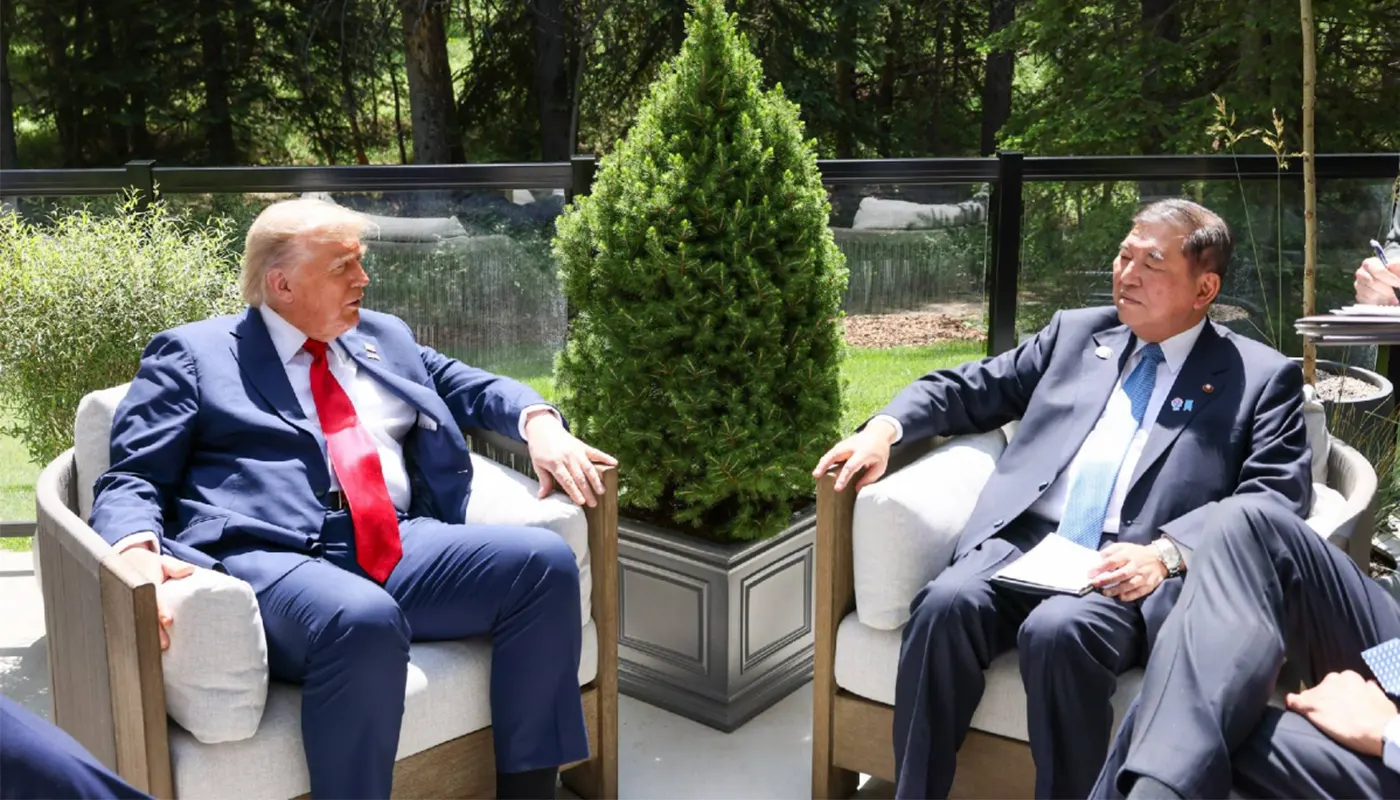Kananaskis, Canada – Japanese Prime Minister Shigeru Ishiba and U.S. President Donald Trump met for approximately 30 minutes on the fringes of the G7 summit to address growing trade tensions, particularly revolving around hefty U.S. tariffs on Japanese auto exports.
Despite the direct engagement, the leaders left without a breakthrough. Washington still enforces a 25% tariff on Japanese-made cars and a 24% reciprocal tariff on other Japanese imports, currently paused until July 9. Japanese estimates suggest those duties could shave off about 1 percentage point from Japan’s GDP and threaten approximately $17 billion in vehicle exports.
Prime Minister Ishiba emphasized the stakes: “Automobiles are a major national interest. We will continue to do everything we can to protect such interests”. Both leaders agreed to continue negotiations at the ministerial level to craft a mutually beneficial package.
The failure to clinch a deal adds pressure on Ishiba, whose Liberal Democratic Party is heading into July’s upper-house elections. Economic fallout from unresolved tariff disputes could compound political challenges.
Their next opportunity for direct negotiation arrives soon at the NATO summit in The Hague (June 24–25), where both leaders are expected to reconvene.






